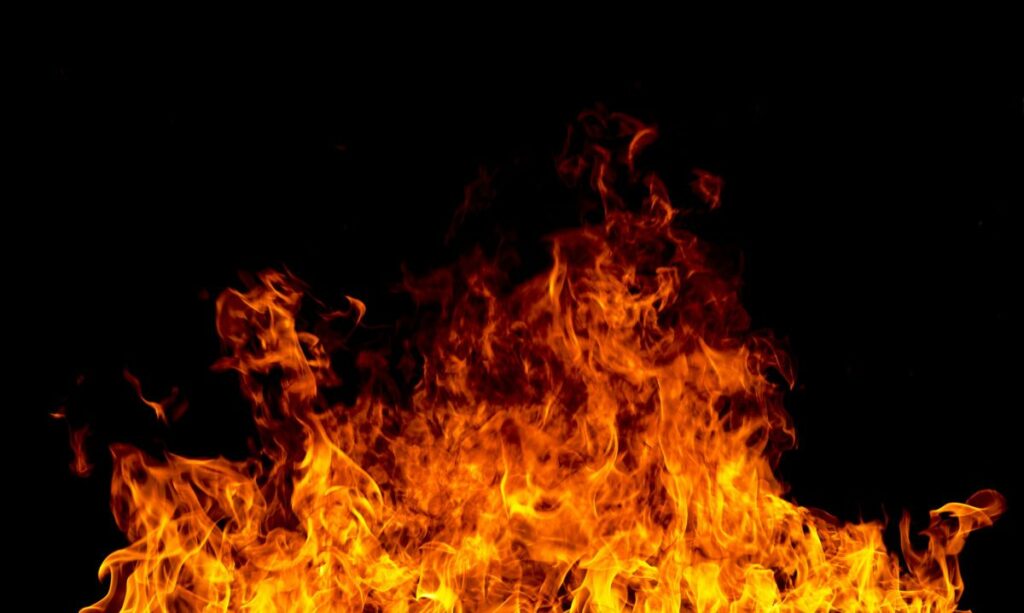Firestops are designed to restore the continuous fire-resistance of wall or floor assemblies, impeding the spread of fire by filling the openings in them with fire-resistant materials.
Similarly, Can anyone install fire stopping?
It is not required by law for firestopping products to be installed by contractors with third party certification. However, having acquired third party accreditation means that the contractor has gone through an audit and their staff has received relevant training.
What is fire sealant? The purpose of fire sealants is to seal any small openings (up to 2-4 cm in diameter) so as to prevent a fire from traveling from a fire area/compartment to another area/compartment of a building or structure.
Thereof, What are fire socks?
Developed to restrict the spread of smoke and flames within external masonry and timber frame walls, and to further minimise the effect of flanking noise pollution at wall junctions. These Cavity fire socks are made of a non-combustible rockfibre mineral wool sleeved in 35 micron polythene.
What is fire stop barrier?
Fire Stop. A fire stop is an inert fire protection component needed to close or seal an imperfection or discontinuity of fit between building features meant to be fire-resistant (for instance, compartment walls/floors) or fitted at any junction or joint in the fire protection part.
Is fire stopping mandatory?
Whilst BS 7671:2018 states that fire stopping is a requirement, it does not detail how it should be carried out or who should do it. For this, it is important to seek further guidance from specialist contractors and manufacturers.
Do you need to be qualified to do fire stopping?
Both the Building Regulations and the Regulatory Reform (Fire Safety) Order (RRFSO) require that the person fitting fire-stopping products is competent to do so and third party certification is the accepted means of demonstrating competency.
What qualifications do you need to be a fire stopper?
This qualification is designed for professionals working in a passive fire role who are looking to gain a fully accredited certification. You require at least 12 months experience working with relevant responsibilities to be eligible for the fire stopper course.
Is silicone sealant heat resistant?
Silicone has a low thermal conductivity. This means it transfers heat at a much slower rate than some other materials, leading to excellent heat resistance. It can also be described as having good ‘thermal stability’ meaning it retains its structure and properties over a wide temperature range.
Is silicone fire resistant?
Silicone’s Fire Resistance
Silicone can withstand high temperatures from 392-572°F. Uses of of silicone include voltage line insulators, automotive spark plug boots, and exhaust pipe hangers. Silicone does not ignite easily.
Is Rockwool fire-resistant?
ROCKWOOL insulation is a key component in fire-resistant buildings. Stone wool insulation can withstand temperatures above 1,000º C and is inherently non-combustible, so it can help ensure a fire in a building does not become a building on fire.
What are fire barriers in new homes?
Cavity barriers are pieces of fire-stopping material which are installed within building cavities. They are designed to delay the speed at which fire can spread.
What is a cavity stop?
Cavity barriers, also known as stop socks, are blocks of fire-resistant materials that seal cavities in the wall to prevent the spread of a fire.
Whats the difference between a cavity barrier and a fire stop?
A cavity fire barrier fills concealed internal gaps within walls, ceilings and other parts of a building. Fire-stops typically fill visible gaps around openings or joints in fire-resistance rated walls.
Who is responsible for fire stopping?
Who is Responsible? Anyone with control over a business premises or other non-domestic premises is responsible for ensuring the fire safety order is met.
What is Firas certification?
FIRAS is a voluntary, third party certification scheme for installation contractors of both passive and active fire protection systems, operated by Warringtonfire and accredited by UKAS to BS EN ISO/IEC 17065:2012.
What is intumescent mastic?
Also known as expansion sealant, intumescent sealant expands when it becomes exposed to extreme heat and can swell up to 40 times its original volume. The sealant increases in volume but decreases in density forming a char layer.
What is a fire stopping register?
The fire register is where records of fire risk assessments, along with all the fire prevention methods and active/passive protection measures, will be kept. This guidance is promoted by the government as part of the Regulatory Reform (Fire Safety) Order 2005, more commonly known as the Fire Safety Order.
What are NVQ qualifications equivalent to?
NVQ Level 1 equivalent – 3-4 GCSE grades 1 – 3 (D-G) NVQ Level 2 equivalent – 4-5 GCSE grades 4 – 9 (A*-C) NVQ Level 3 equivalent – 2 A Levels. NVQ Level 4 equivalent – Higher Education Certificate/BTEC.
What sealant is fireproof?
Sikacryl-621 Fire+ Resistant Interior Sealant
Sikacryl-621 Fire restores the fire resistance performance of a floor or wall which incorporates penetration services or linear seals. The extremely versatile 1-part product is ready to use and easy to apply, providing acoustic insulation and up to 4 hours fire resistance.
What sealant can withstand heat?
Heat resistant silicone, also known as high temperature silicone, is an extremely strong, long-lasting adhesive that can withstand exposure to high temperatures. Unlike regular sealants, it’s specially formulated to cope with even the hottest temperatures, and, in some cases, direct exposure to flames.
What sealant is heat resistant?
Vitcas® Heat Resistant Sealant is used for fixing and sealing gaps in ceramics, glass, metal and other silicate materials. High heat resistance up to 1300oC. Heatproof sealant is highly adhesive.
Join TheMoney.co community and don’t forget to share this post !
